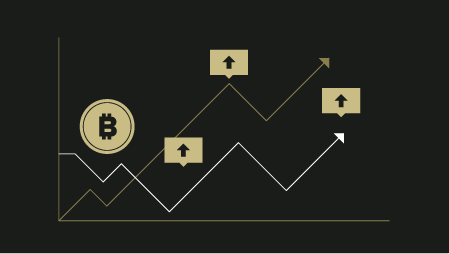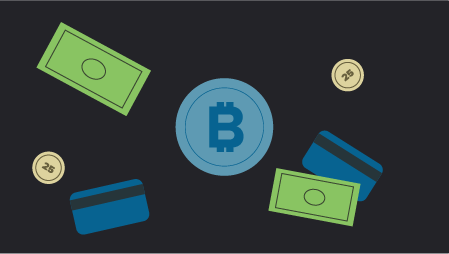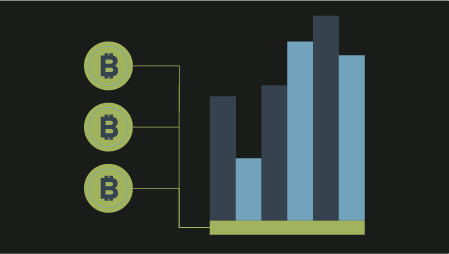Ready to learn Blockchain? Browse courses like Blockchain for Finance Professionals developed by industry thought leaders and Experfy in Harvard Innovation Lab.
Blockchain technology has been at the center of media attention due largely to bitcoin, an upcoming digital currency that uses blockchain technology, increasing in value, netting investors unheard of returns. However, not many people actually understand what blockchain itself is.
Simply put, a blockchain is a distributed, immutable ledger or database that stores records, known as blocks. Blocks can store various kinds of information; in the case of bitcoin, blocks store information about financial transactions. These blocks, which collectively form a “blockchain,” are stored on various storage devices or nodes, which ensures that no single person or entity can manipulate the ledger or database without everyone else knowing.
Moreover, once a block is added to the blockchain, it is immutable, which results in improved data accuracy and maintenance. While blockchain has mostly seen uses in the financial space, it’s clear that such technology could potentially revolutionize other areas, such as healthcare and medical records.
How Blockchain Can Revolutionize Healthcare
While blockchain is being considered for many uses, its potential to revolutionize healthcare is evident. Having an open blockchain for medical data can prove useful as most healthcare data now is segregated amongst different providers, who often use different database systems. For example, in the city of Boston alone, there are 26 different systems used for electronic medical records. Each system has its own “language” and crucial information is often scattered and inaccessible, which is very dangerous in an industry where even a few extra seconds or minutes to obtain critical information could be the different between life or death for a patient. By having blockchain systems built for healthcare, important healthcare-related data can be more easily accessible amongst healthcare providers, which can lead to better and faster treatment.
Moreover, unlike a blockchain, healthcare data is usually not distributed or stored on various computers, which can not only result in one party being able to manipulate information but also a single point of failure that makes healthcare data systems easy targets for hackers and other malicious individuals. In fact, hospitals and healthcare systems have become a prime target for ransomware attacks for this reason. If information was distributed and stored amongst various parties, such attacks wouldn’t be as easy.
How Blockchain Can Impact Medical Records
Blockchain has shown its usefulness when recording events like transactions. This usefulness could be extended to medical records, which often suffer from inaccuracy and discrepancies. Healthcare professionals are responsible for ensuring that sensitive medical records are accurate, complete, and only available to authorized individuals. All of this can prove to be difficult when healthcare providers all have different systems for storing information. For example, prescription records are one aspect of medical records that could be positively impacted by blockchain. Just imagine if a patient’s prescription information was left vulnerable to manipulation by hackers. Simply put, the more quality and secure that health information is, the better the quality and care.
As it stands, patients currently have their medications prescribed and filled by various entities, such as hospitals and pharmacies. Each entity has their own database for patient medications and prescriptions, which can result in discrepancies in patient records.
By having a “prescription blockchain,” much of the problems that arise from varied systems and records could be avoided as the blockchain could serve as a shared and trustworthy source of patient prescription records. Healthcare providers could have an accurate, immediate view into a patient’s medications, both past and present, which would result in better, more personalized treatment.
Blockchain’s Potential Impact on the Nursing Industry
According to many industry professionals, the future of healthcare and nursing in particular will leverage informatics to help coordinate patient information and develop evidence-based practices. The amount of health care data that is collected through technology like electronic health records, wearable devices, patient portals, and more is increasing drastically. This data can be analyzed and subsequently leveraged to improve healthcare procedures and strategies.
However, this data must be properly managed to ensure that those outcomes can be met. With blockchain technology, nurses that are responsible for accessing, recording, and maintaining this type of data can be more confident that the data will be accurate and consistent, which can lead to improved patient care.
Conclusion
With blockchain-based technology like bitcoin taking up news headlines, awareness and excitement about other potential uses for blockchain is increasing. One of the best use cases for blockchain may end up being healthcare and medical records. By having a distributed database for healthcare-related information, healthcare providers can benefit from increased accessibility, accuracy, and safety, all of which will result in better healthcare outcomes for all.



